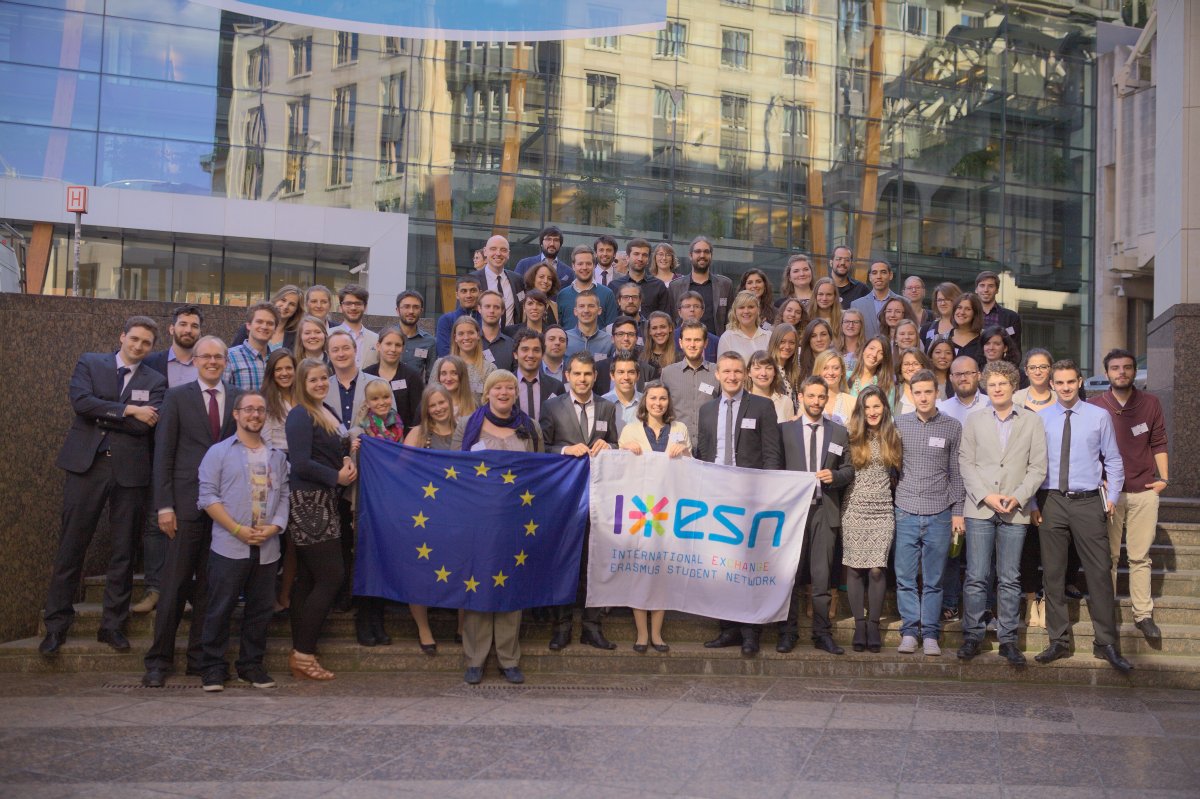
Friday, 19 September, 2014 - 13:35
BRUSSELS, Belgium – 15th of September 2014
The Final Conference of STORY (Strengthening the Training Opportunities for International Youth) took place at the European Economic and Social Committee in Brussels last Friday, the 12th of September.
The STORY Final Conference presented the outcomes of the one year research study on recognition of mobility for study and training. Additionally, ErasmusIntern, one of the main project outcomes was launched during the conference. Erasmusintern.org is a platform that provides an integrated marketplace that aims at bringing training providers and students seeking a training opportunity abroad. It has been developed in the framework of the STORY project which also generated some exciting numbers regarding international internships. In order to achieve the project goals such as improving the access and quality of international internships, the research committed this year helped identifying the obstacles, especially the ones related to recognition, and expectations of the different actors (Students, Higher Education Institutions, National Agencies and Receiving Companies/Organisations) involved in study and training mobility.
Although it not possible to directly compare the outcomes of the PRIME 2009 (66% of the students receive full recognition) and PRIME 2010 (improvement to 73% of full recognition) with the outcome of this study, in quantitative terms a clear and positive trend becomes evident.
STORY research takes a more multifaceted approach. Full recognition for students who receive ECTS credits and who later on give more detailed information on the exact amount of credits is as high as 84% when asking a direct yes or no question. Taking into account the whole sample, the number is considerably lower and only 76% say they have received full recognition. The most common reason (43%) to not receive full recognition of studies abroad is that the content or a part of the courses were not accepted by the sending institution.
Regarding traineeships, 64% of all responding students have already received recognition for their traineeship. The main obstacle to recognition identified by 76% is that the traineeships was not required as part of their degree. Know more about the STORY Research by checking the Report.
While the trend is clearly positive, it is far from ideal. Around a fifth of all mobile students do not receive full recognition and many still have to take extra efforts to get their credits recognised. The results clearly show that the recognition of credits taken abroad remains a major challenge in the implementation of the programme. Likewise, the fear of non-recognition remains a major obstacle for mobility.
In this sense, one of the main recommendations on recognition of studies and traineeships abroad is that the only credit system used should be the European grade transfer system and it should be unified and reviewed. In addition, Higher Education Institutions should recognise all courses approved in students’ Learning Agreements with no further examinations or additional tests.
STORY Final conference was attended by national research coordinators; students involved in the project, partners of the project as well as important stakeholders in the area of study and training mobility. The conference was preceded by a one-day intensive training session, in order to engage our members to act as multipliers of the project at local and national level.
During the conference, Runa Vidgis Gudmarsdottir, representative of the Erasmus Unit in the DG Education and Culture presented first results of the Erasmus Impact Study and the benefits of international Internships. Dominique Montagnese, Vice-President of ESN, gave his testimonial on how an international traineeship helped him develop his skills. Daphne Scherer, also from the Erasmus Unit in the DG Education and Culture, presented what the new Erasmus+ programme is offering to students interested in an international internship.
A panel discussion with an intriguing setting that generated a very fruitful debate took place. Stefan Jahnke, President of the Erasmus Student Network, Allan Pall, Secretary General of the European Youth Forum and Pierre-Julien Bosser, co-founder of InternsGoPro discussed the quality of internships and how to improve the situation for future Interns.
Doris Pack, former MEP and chair of the CULT Committee shared some insight on the development of Erasmus+ and Thomas Berger, Managing Director of inter.research presented accompanying measures to international internships to facilitate the self-development of participants. Finally, Joachim Wyssling from Campus Europae presented some alternative solutions for high quality internships, by explaining how the concept of combined studies and paid internships work.
Participants and speakers of the STORY Conference in Brussels agreed unanimously: Full recognition and quality traineeships abroad for all!

Follow ESN